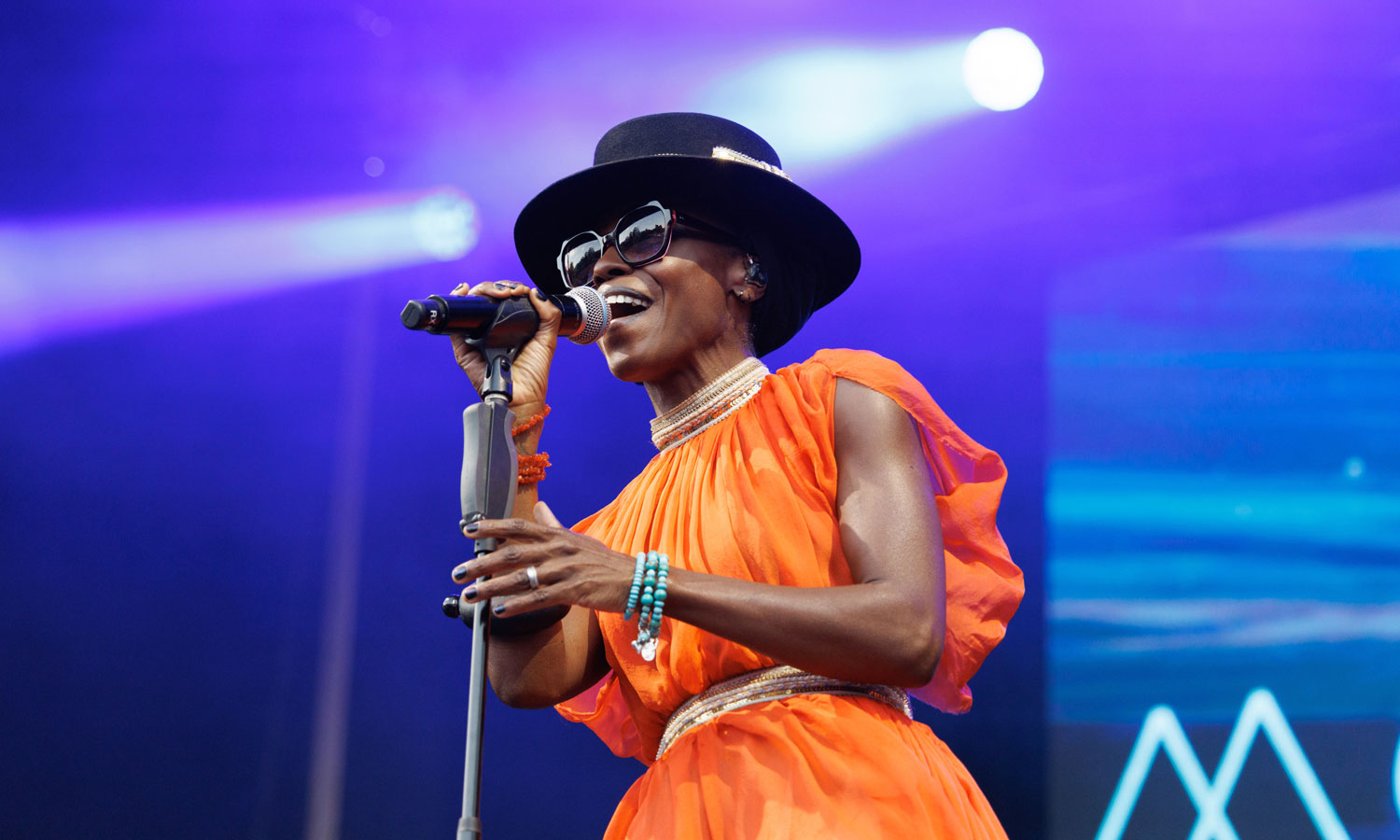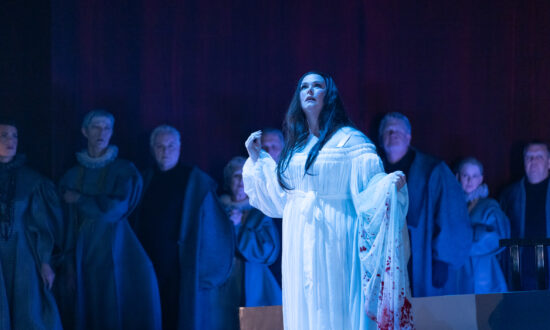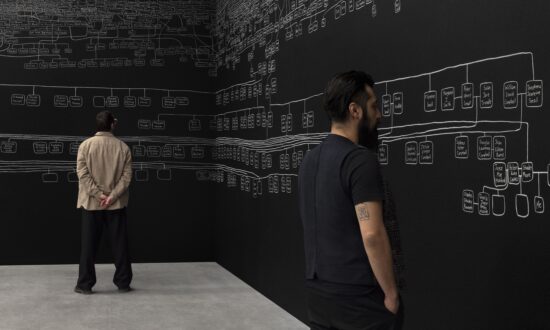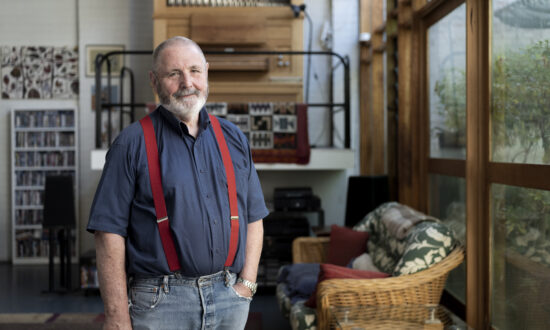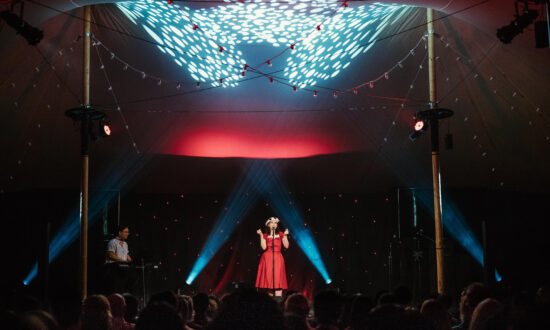The spirit of WOMADelaide revellers was noticeably more relaxed from day one this year, despite the sweltering heat. There was room to move around the park, short queues for food and toilets, and little difficulty finding a great viewing spot for each performance.
Seventy-two artists from more than 40 countries performed over the weekend, with total attendance over the four days down on last year’s 110,000 and more ticket holders arriving later to avoid the afternoon sun. The redesign of the Botanic Park site – coupled with the fact that there were no big mainstream artists of the calibre of 2023 acts Florence + The Machine and Bon Iver – also made for a very different experience.
One of the first acts on the line-up was Narrm-based group Folk Bitch Trio, with their delicious harmonies and dreamy guitars. They are like Australia’s answer to American indie supergroup Boygenius and seemed to particularly resonate with the younger women in the crowd.
Other opening acts leant into the dance ethos of the festival, including the Netherlands’ Mauskovic Dance Band, which provided cyclical dance grooves for those who wanted to lose themselves in a rhythm. DUBIOZA KOLEKTIV, an eight-person band (including two DJs) from Bosnia, brought the party with their heavy reggae style and rowdy dance instructions.
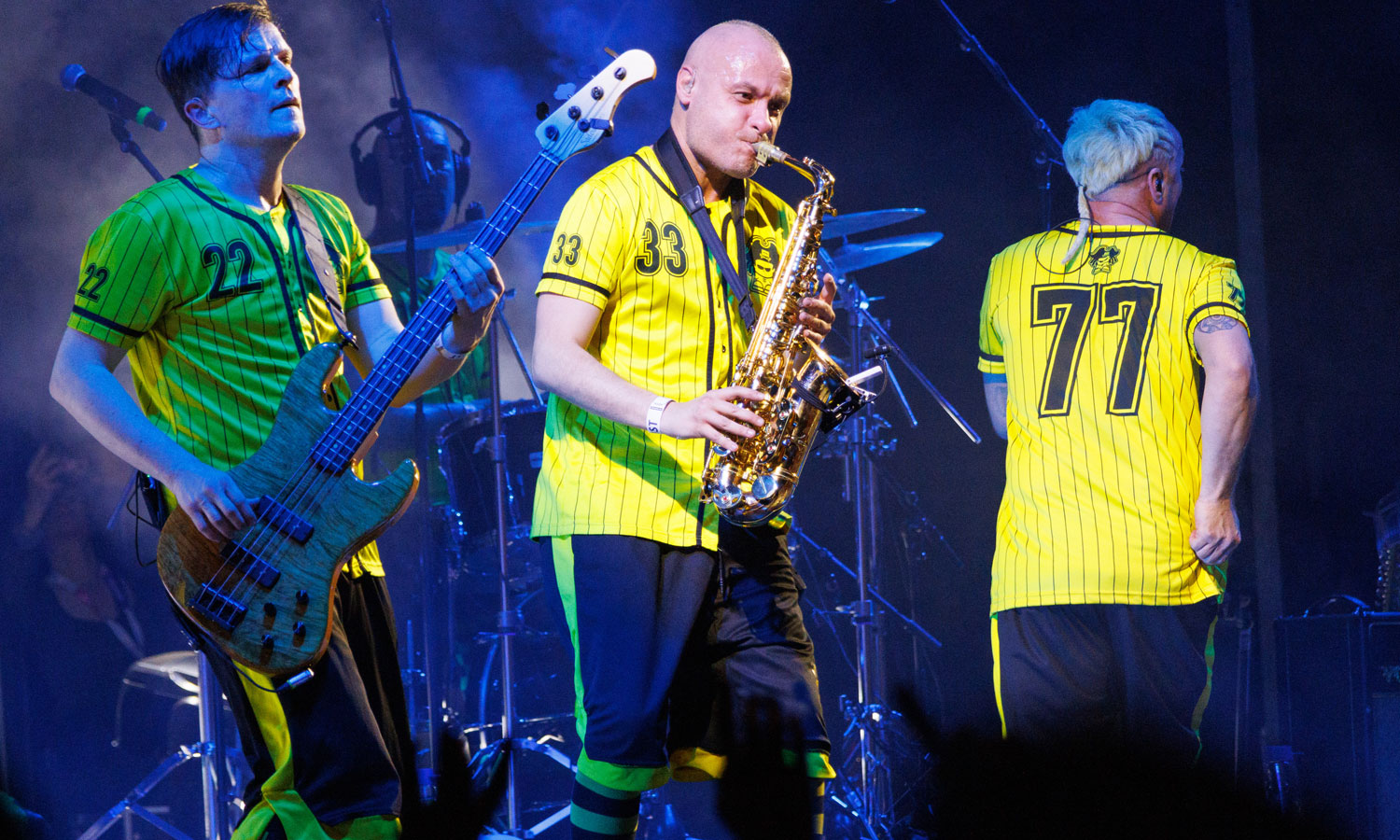
DUBIOZA KOLEKTIV brought the party. Photo: Tony Lewis
Friday night’s headliner, UK-based singer-songwriter Corinne Bailey Rae, oozed cool, starting off with a warm R’n’B hug of soul. The majority of her set delved into heavier rock ground as she performed songs from her latest album, Black Rainbows, which tells stories inspired by a Black history exhibition she attended at a Chicago museum. The song that lit up the crowd, however, was her 2006 hit “Put Your Records On”.
Crowd numbers for the festival’s opening day and earlier Saturday afternoon were lower than previous years, but by Saturday evening people were streaming in the gates and in good spirits despite the high temperature. Organisers had to make several schedule changes over the weekend due to the heat, including closing Stage 7 until the evening, while misters around the park and personal spray bottles were in heavy use.
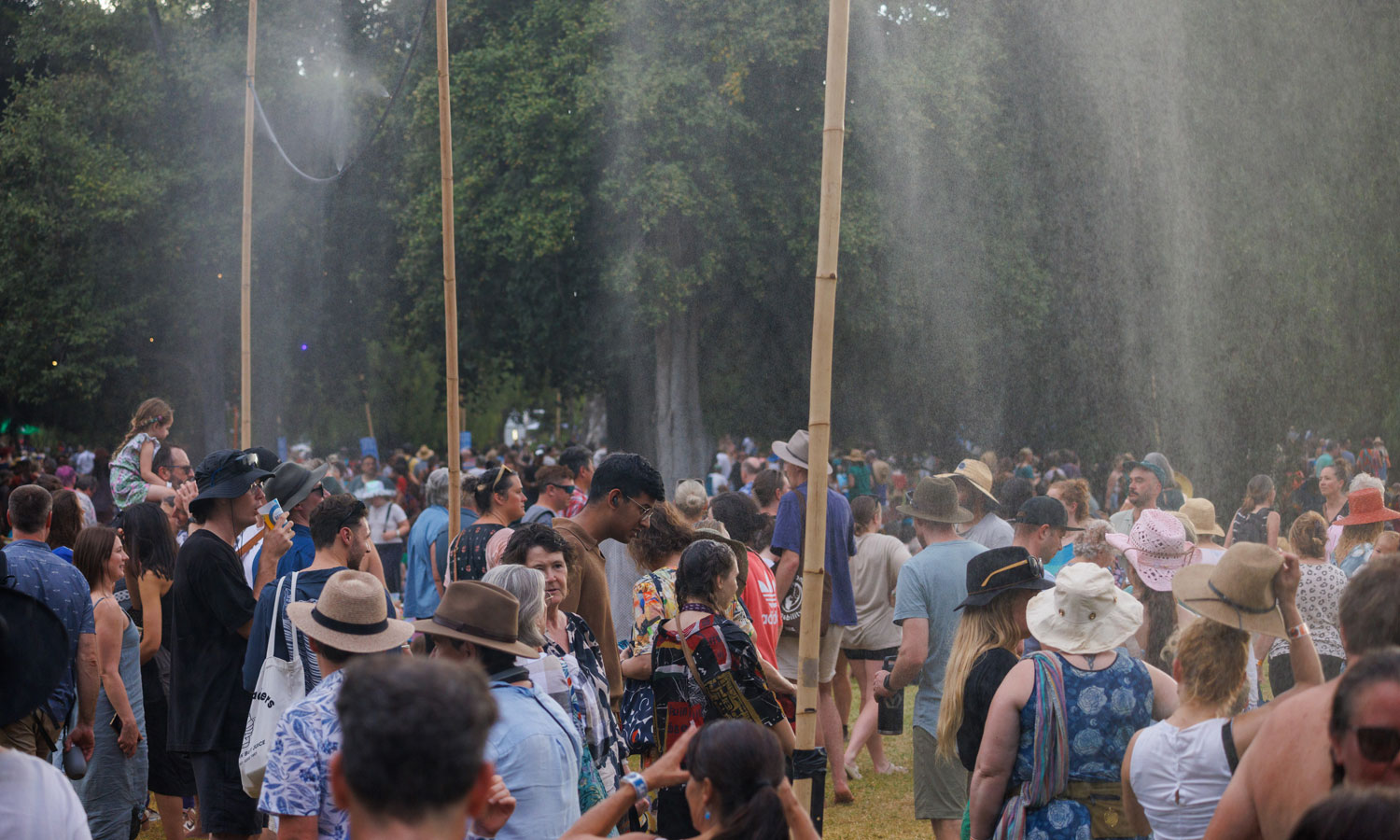
Mist areas helped festival-goers keep their cool. Photo: Tony Lewis
Day two’s program featured a predominance of dance and rhythm-heavy artists. Chilean group Illapu, famous for their protest songs, were a delightful listen, with Latin-American-style guitar, panpipes and vocal harmonies. The danceability of their bright sound mixed with the political history of the group evoked the WOMADelaide vibe for which the festival is known.
People scrambled for a spot to see José González’s solo show on Stage Two. The Swedish musician’s classical-style guitar brought a feeling of peace to the park and created a magical moment as the relief of a breeze and spots of light rain hit the audience. A little later, Brazil’s Gilberto Gil performed a set as part of his Aquele Abraco farewell tour. At 81 years old, Gil looked at home on the stage and his music felt as fresh and innovative as ever.
Off-stage shows around the park included a gravity-defying aerial performance on large steel “action machines” by New York-based STREB EXTREME ACTION (which is also part of the Adelaide Festival program), and a new work by French company Gratte Ciel called RoZéO, which was much smaller than last year’s feather extravaganza and featured three doll-like aerialists sitting atop poles in the treetops, dancing and swaying to the live score of singer and instrumentalist Pauline Fremeau.
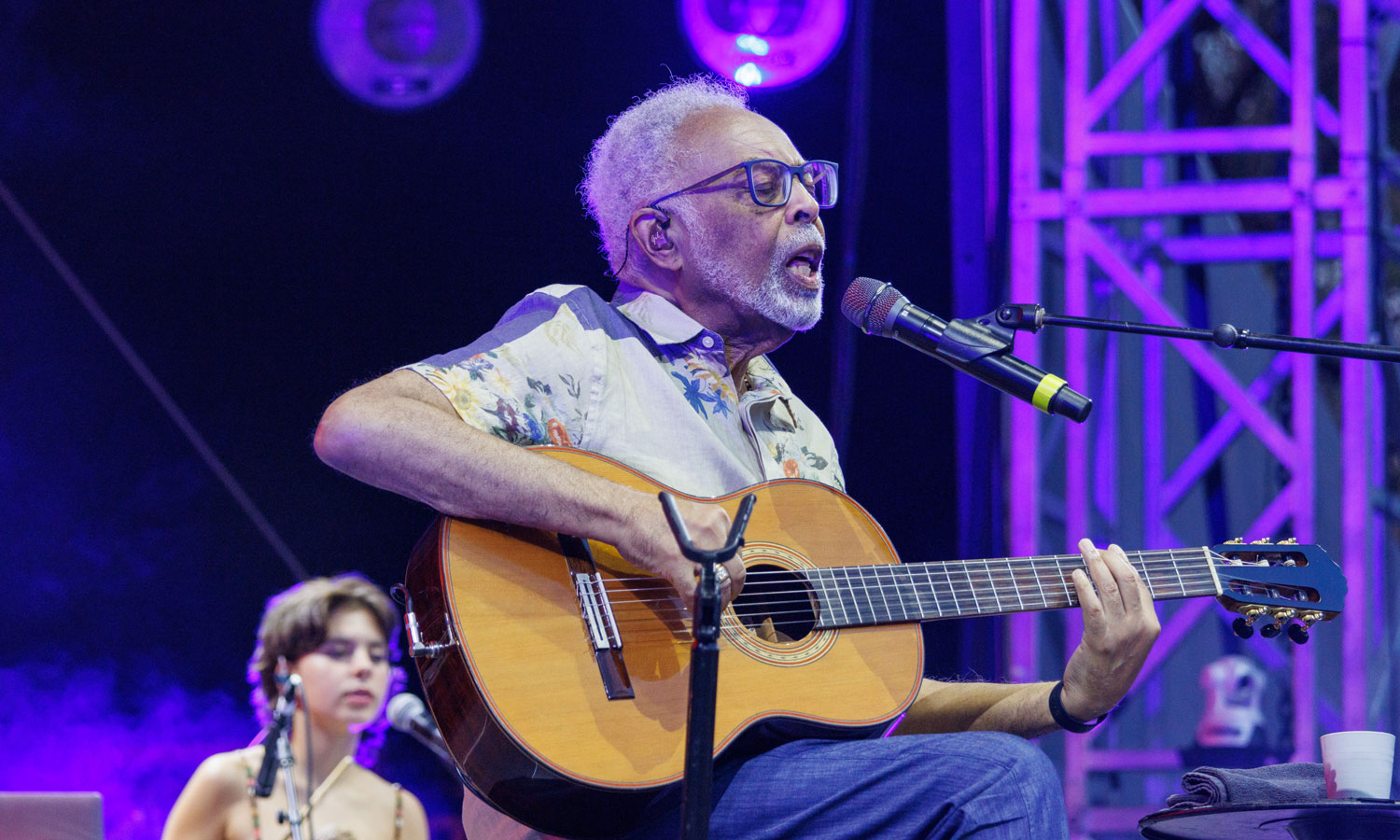
Gilberto Gil looked at home on the stage. Photo: Tony Lewis
Saturday was closed out by headliner Seun Kuti and Egypt 80, the original Afrobeat band founded by his father Fela Kuti and led by Seun since 1997. A “free Palestine” chant from the crowd during a lull in the show prompted Kuti to speak about capitalist ideals of the Western world and their role in oppression. He then played the song “Zombie”, which speaks to how people follow structures that tell them what to do and what role to play in society.
Highlights of Sunday’s program included London-based jazz drummer Yussef Dayes and his contemporary UK jazz quartet, whose deep pocket grooves and slick performance created one of the best vibes of the weekend. It was also hard to not be drawn in by the beat drops and killer horn section of the UK’s Ibibio Sound Machine, influenced by frontwoman Eno Williams’ Southern Nigerian roots. And when it comes to wonderful WOMADelaide weirdness, DakhaBrakha could not be beaten with their Ukrainian folk “ethno chaos” style, wide array of instruments and mesmerising vocals.
Other artists worth mentioning include Brooklyn-based singer and composer Arooj Aftab, whose stripped-back band of guitar, bass and light percussion allowed her voice to soar in all its warmth and richness; the collaboration between Adelaide-born songwriter Jen Cloher and five-piece Māori band T’HONI; and Sunday headliner Baaba Maal, whose charismatic performance melded traditional and electronic sounds and dance from Senegal.
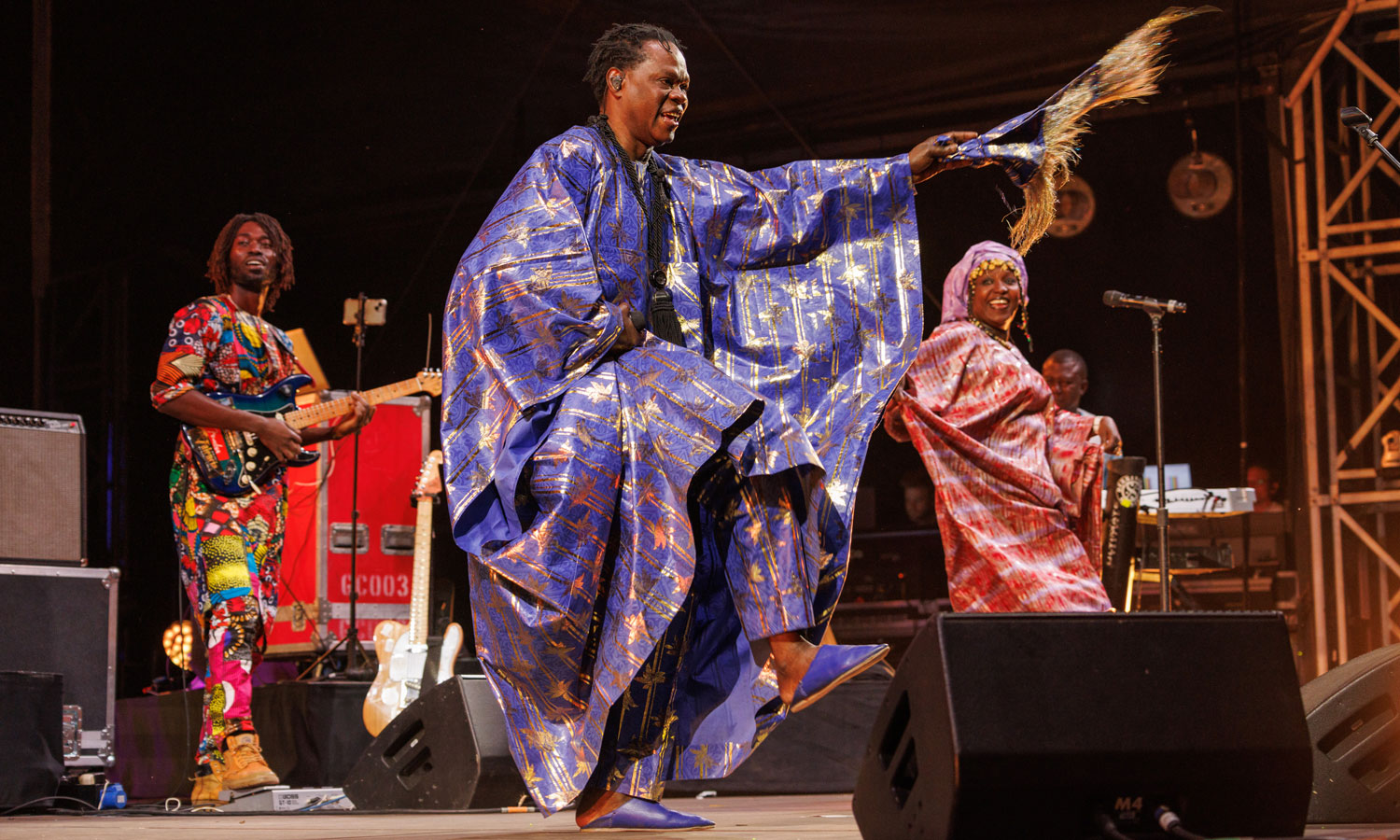
Sunday headliner Baaba Maal. Photo: Tony Lewis
In their Sunday late-night performance, Adelaide band Druid Fluids highlighted how coming to the festival throughout their childhood and adolescence had influenced their music and exemplified the cyclical relationship a festival like WOMADelaide has with South Australian artists.
Monday’s line-up included Réunion Island artist AURUS’s unique brand of drum-driven, electronic pop in a captivating performance on Stage Three; UK band Morcheeba’s heavy beats and vibey hip-hop styles that offered a beat to lose oneself in, and Naarm-based group Black Jesus Experience’s blend of Ethiopian jazz and hip-hop.
Grammy winner Angélique Kidjo was a late addition to the program – replacing Nitin Sawhney’s scheduled Monday night performance after he had to withdraw due to a medical emergency – and her high-energy set had the Foundation Stage crowd dancing from the first beat.
The most controversial artist of the weekend, Ziggy Marley, headlined Monday night to a mixed crowd of Marley-lovers and protesters who objected to the decision to have the Jamaican musician at the festival due to his support of Israel. Marley opened with his 2003 song “Shalom Salaam”, a choice that was either his way of offering an olive branch or tone deaf to the sentiment of some in the audience. Despite the controversy and a small police presence, a sizeable crowd danced and enjoyed the music.
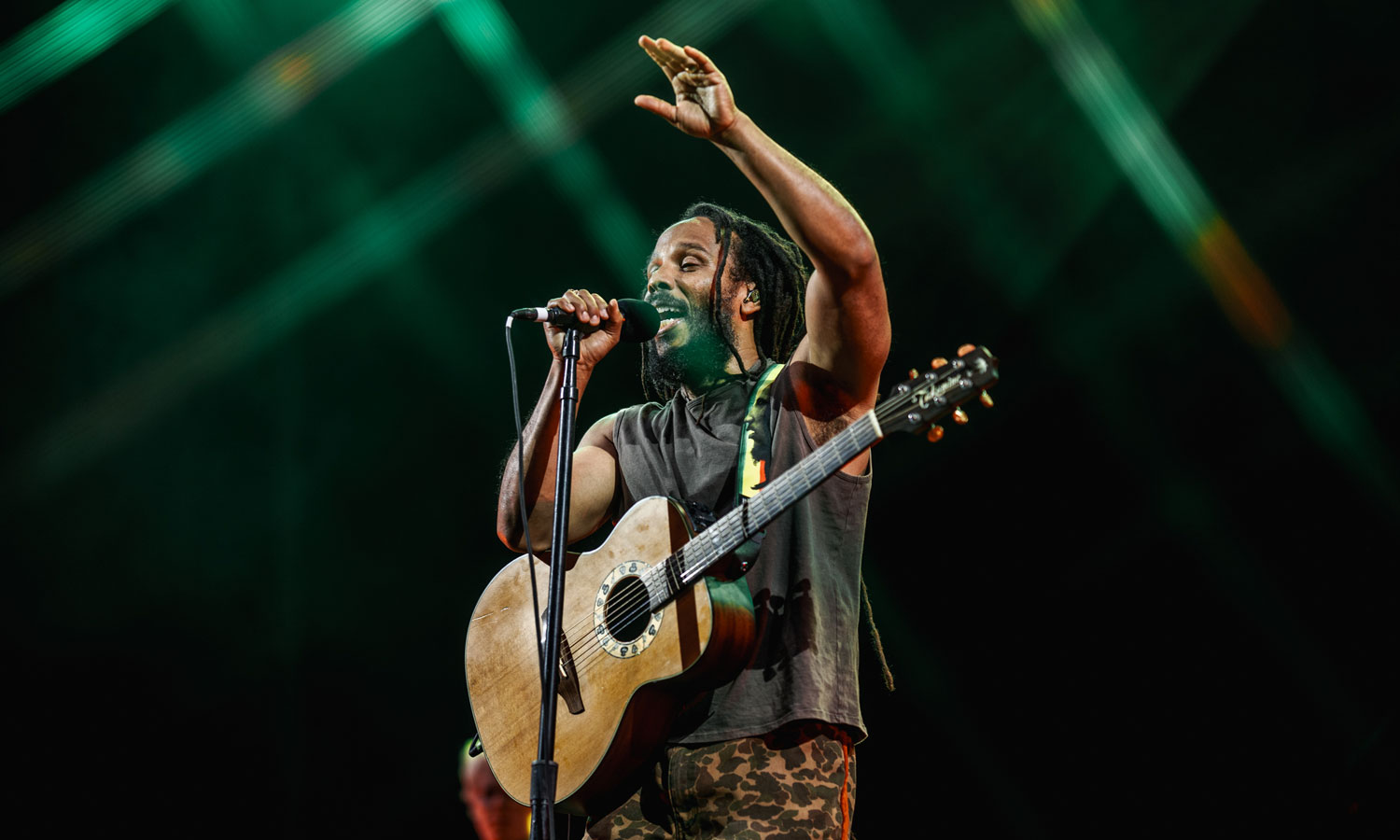
Ziggy Marley headlined on Monday. Photo: Saige Prime
The other contentious issue surrounding this year’s event was the revelation that Palestinian band 47SOUL had been uninvited by organisers late last year, and protesters made their feelings known at the Frome Road entrance to Botanic Park and in messages scrawled in the toilets on site. On Sunday, WOMADelaide posted a statement on the website, acknowledging that “We hear you, we’re sorry – we don’t always get it right”.
Throughout the entire weekend, calls for peace became a common thread as they reverberated across the park. It was clear this year’s artists felt the weight of their responsibility as platform-holders to use their art to spread this message.
The State Government announced on Sunday that it is extending its partnership with WOMADelaide for another five years, describing it as an “icon” in the calendar of Mad March events.
WOMAD has been presented in more than 35 countries over the past 42 years, and global chief operating officer Mike Large noted in a statement that the Adelaide event was both its longest partnership and its longest-running festival in the same location.

Get InReview in your inbox – free each Saturday. Local arts and culture – covered.
Thanks for signing up to the InReview newsletter.
“WOMAD is the World’s Festival and brings the world to the world with an ever-changing program,” he said. “It only stands the test of time because it evolves and responds to its audience and location and to do that it relies on the passion and dedication of its patrons and nowhere is that passion and dedication stronger than Adelaide.”
Photo gallery:
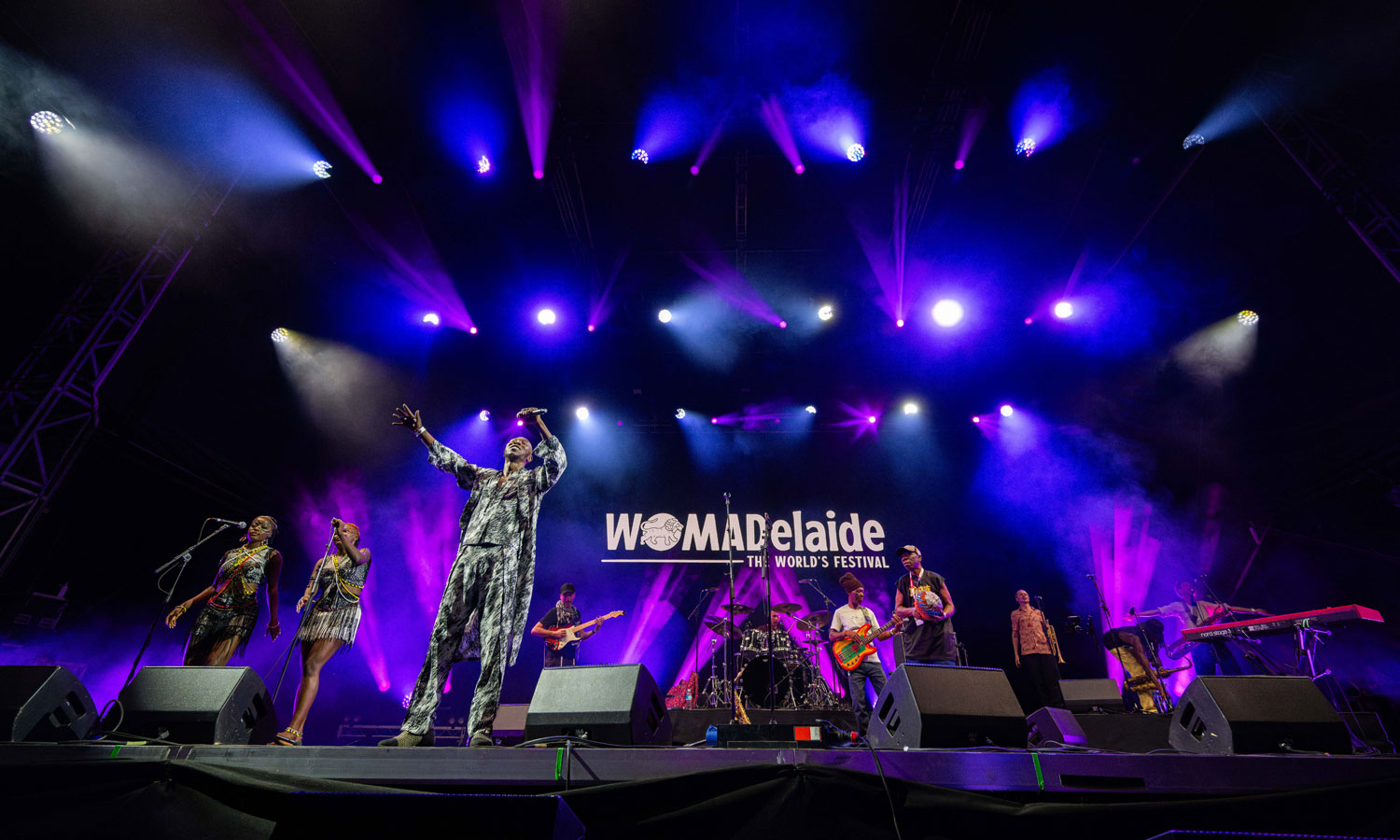
Seun Kuti and Egypt 80. Photo: Morgan Sette
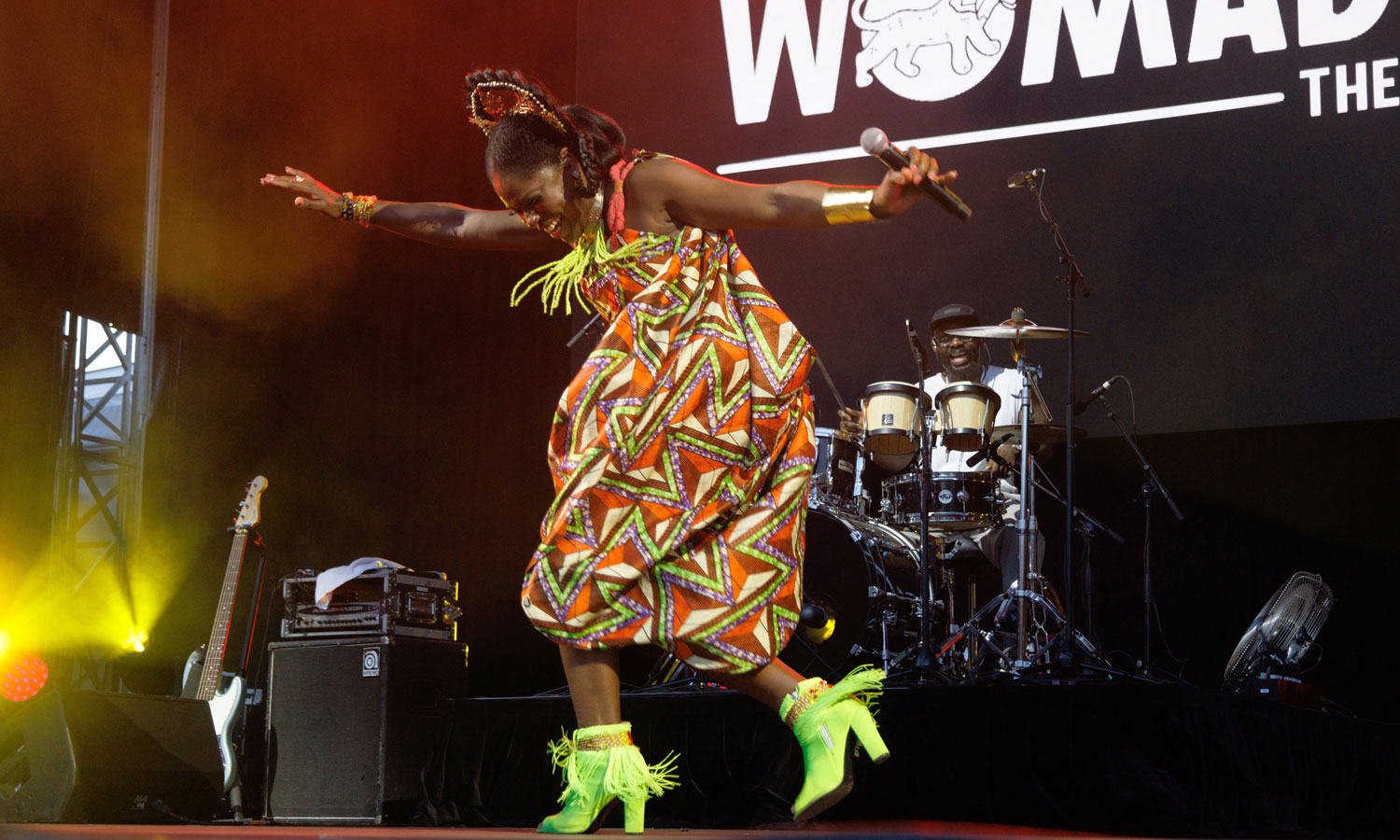
Ibibio Sound Machine. Photo: Tony Lewis
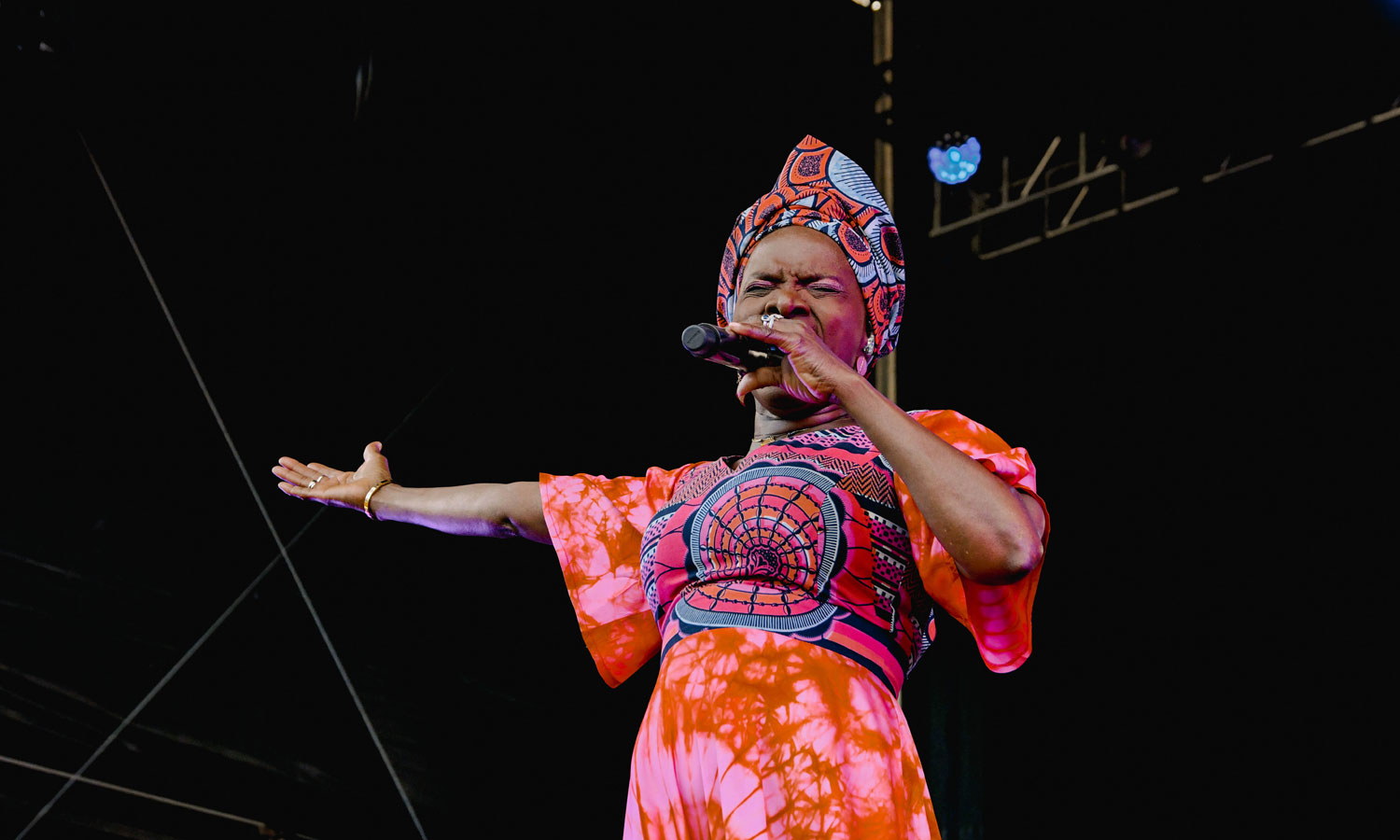
Angelique Kidjo. Photo: Jack Fenby
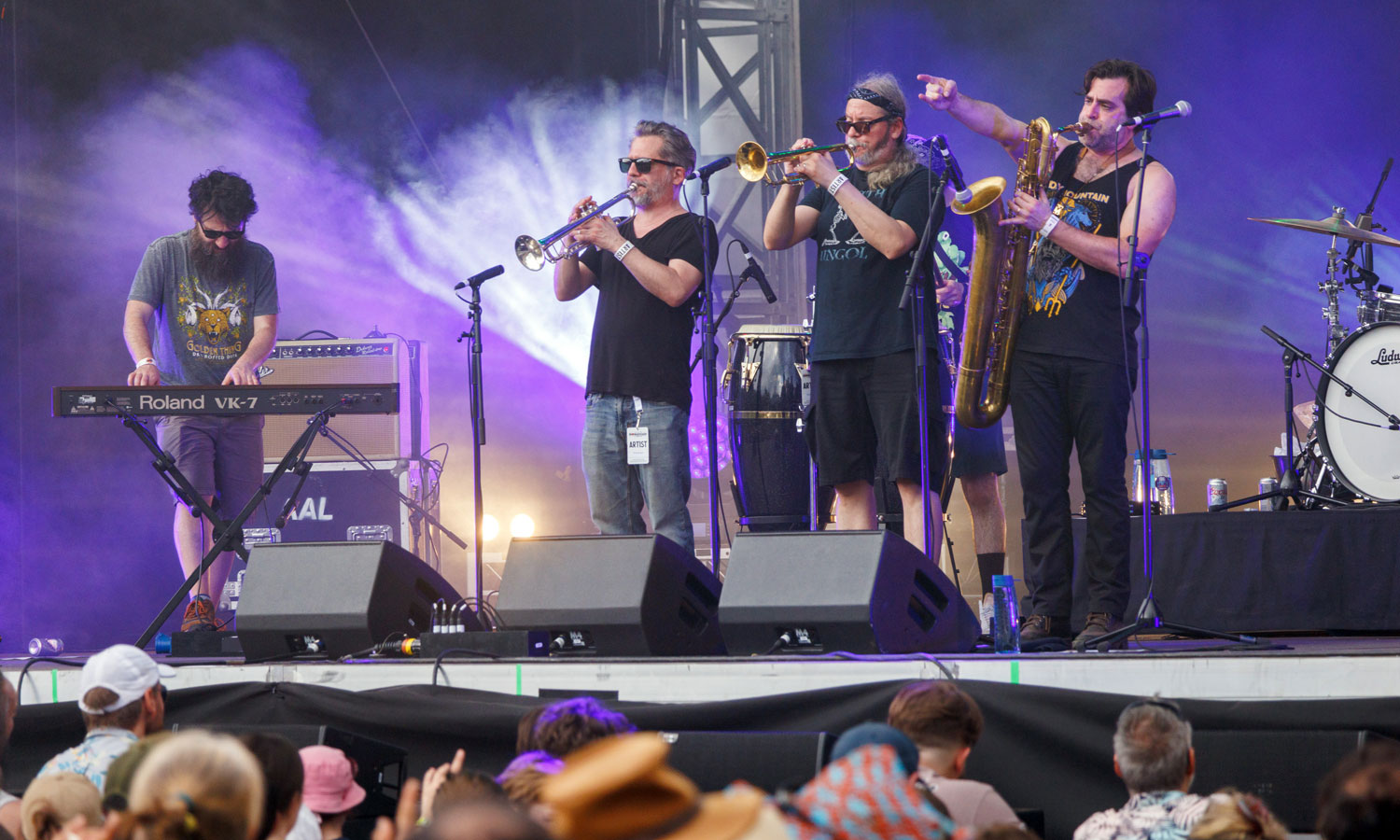
The Budos Band. Photo: Tony Lewis
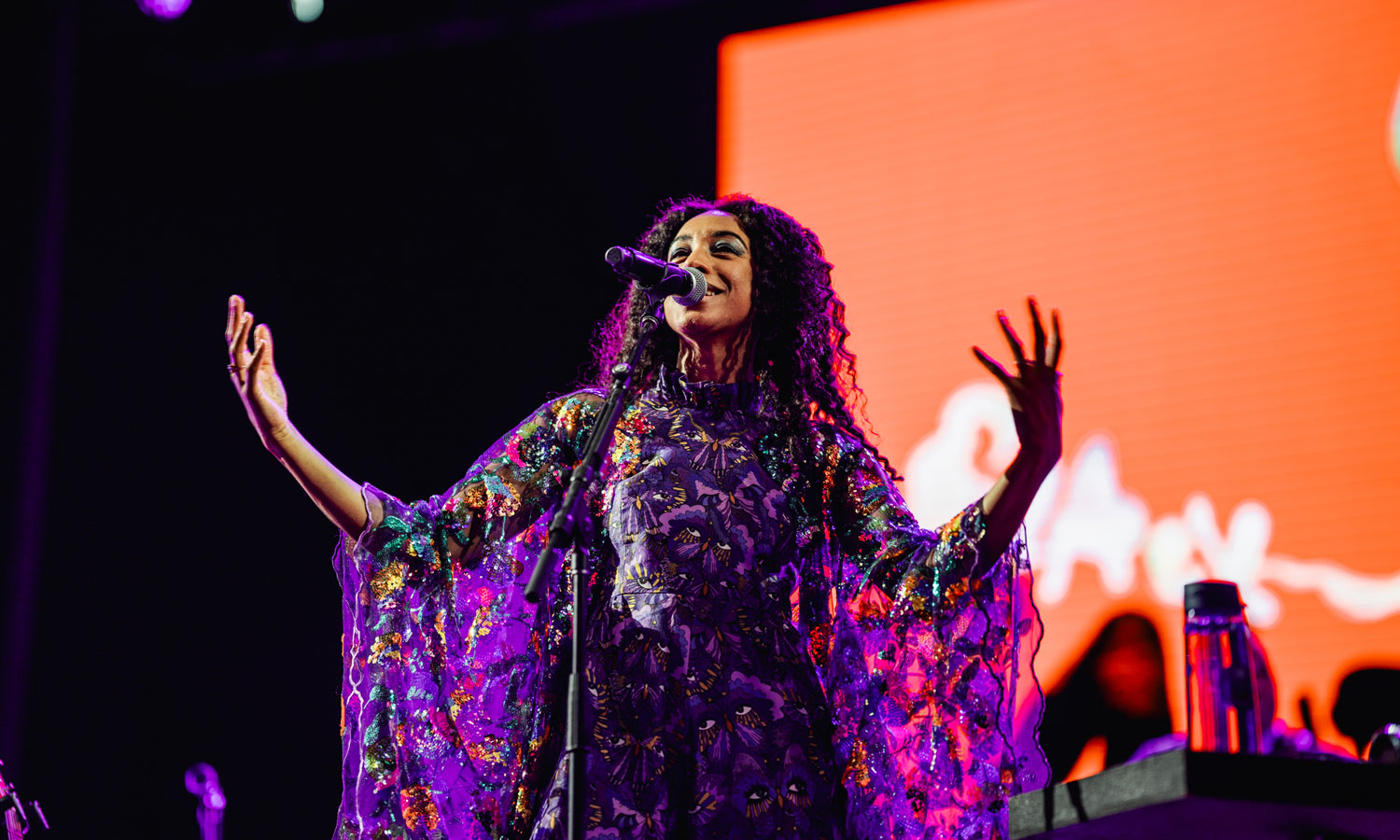
Singer-songwriter Corinne Bailey Rae. Photo: Saige Prime
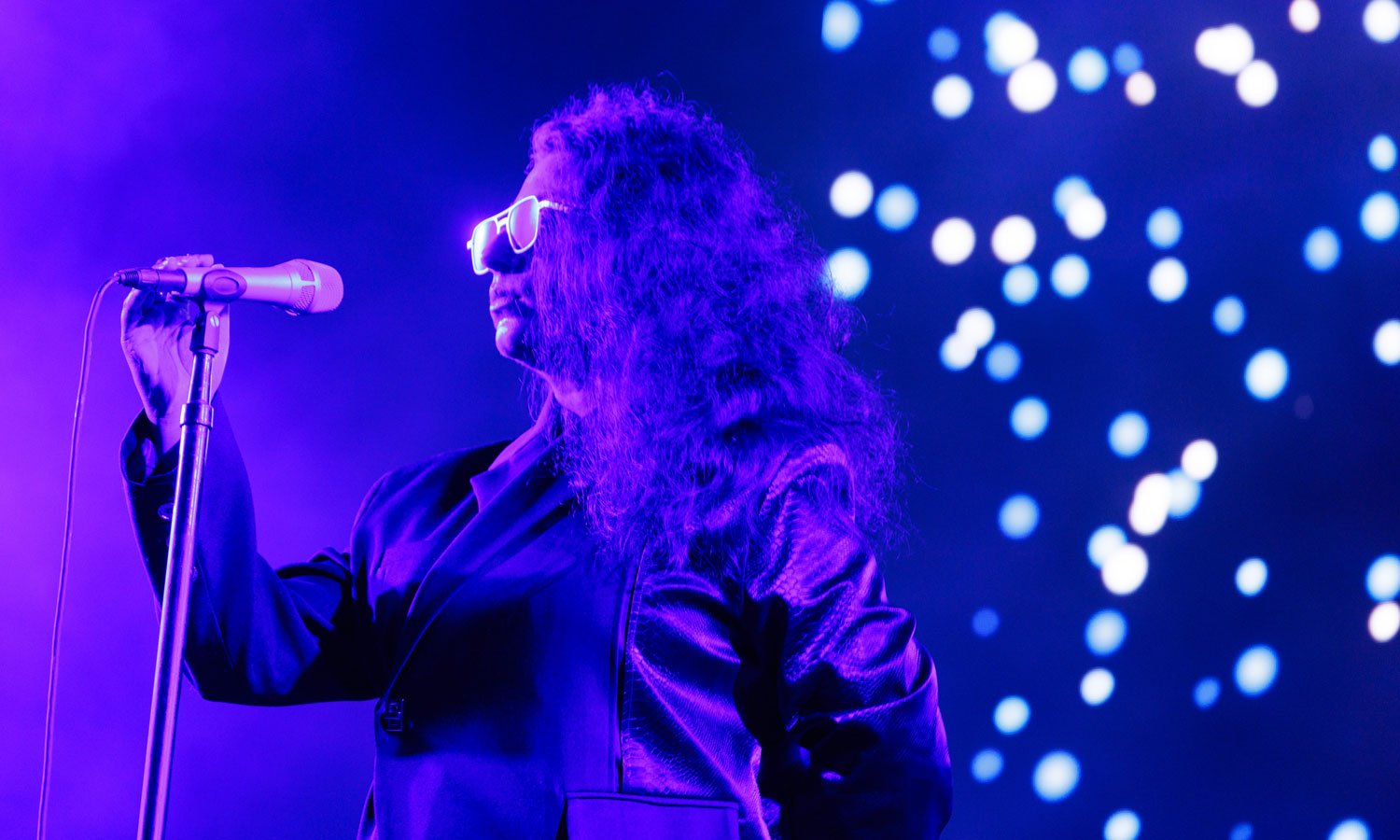
Brooklyn-based Arooj Aftab. Photo: Tony Lewis
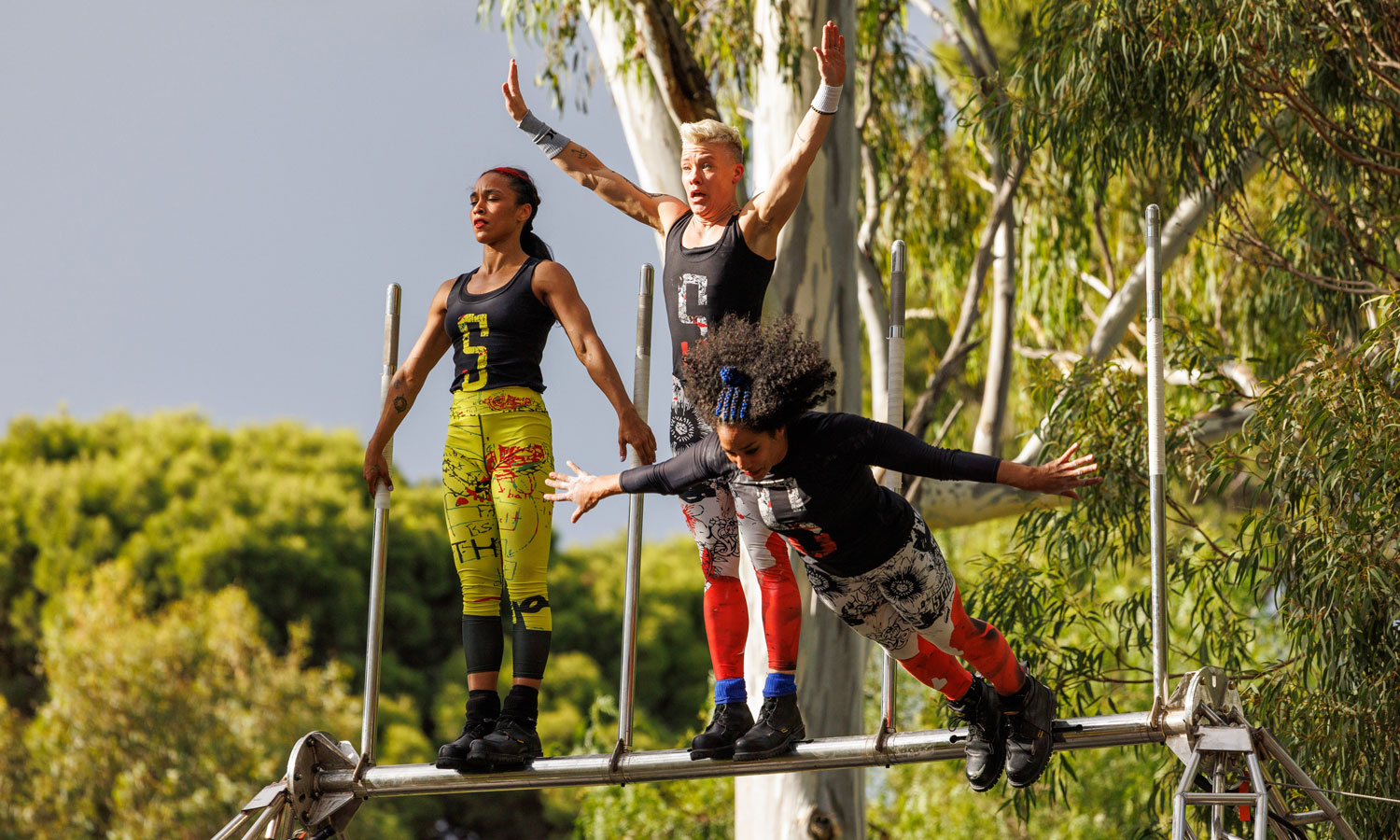
STREB EXTREME ACTION in action. Photo: Tony Lewis
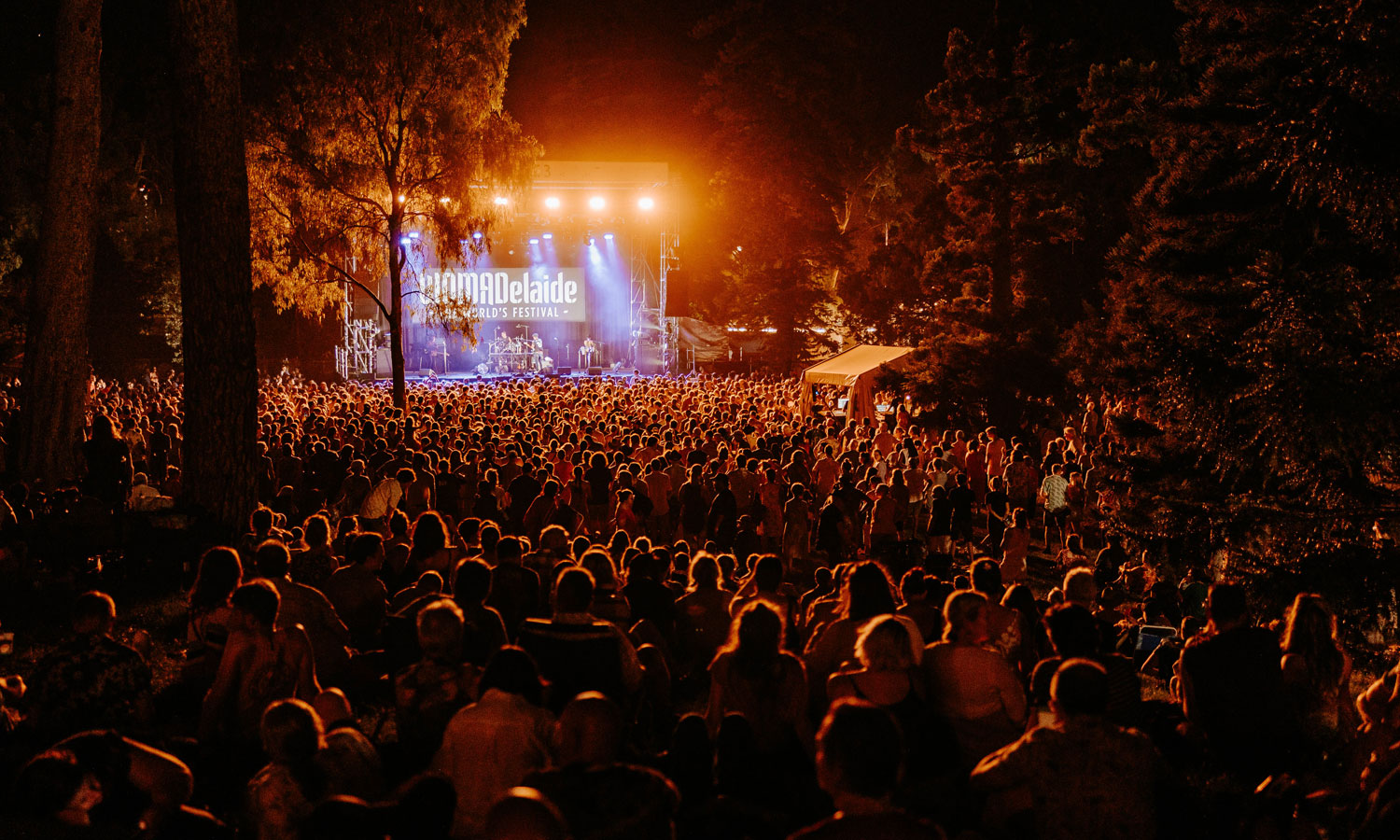
Crowds dance to Mexican band Son Rompe Pera. Photo: Samuel Graves
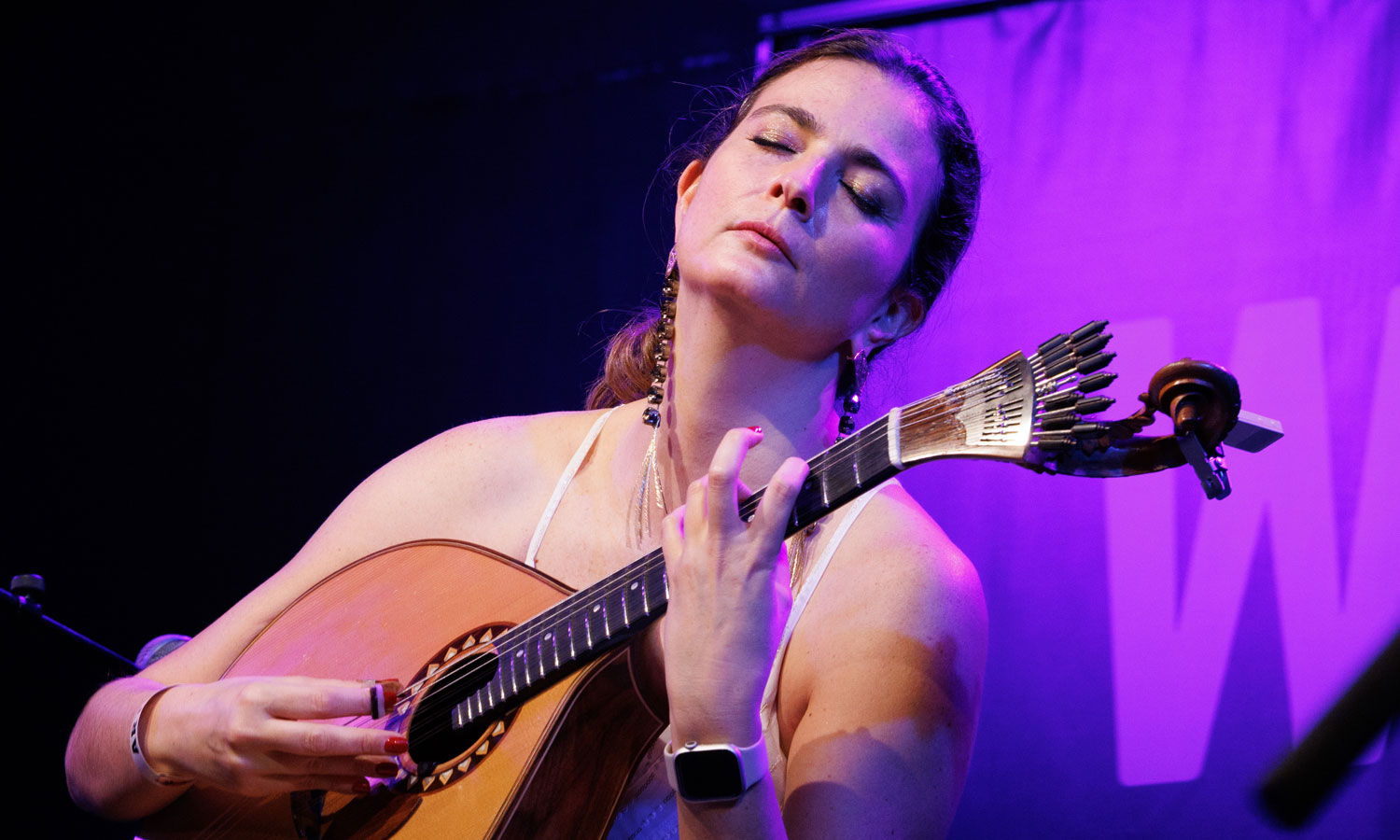
Portuguese singer Marta Pereira da Costa. Photo: Tony Lewis
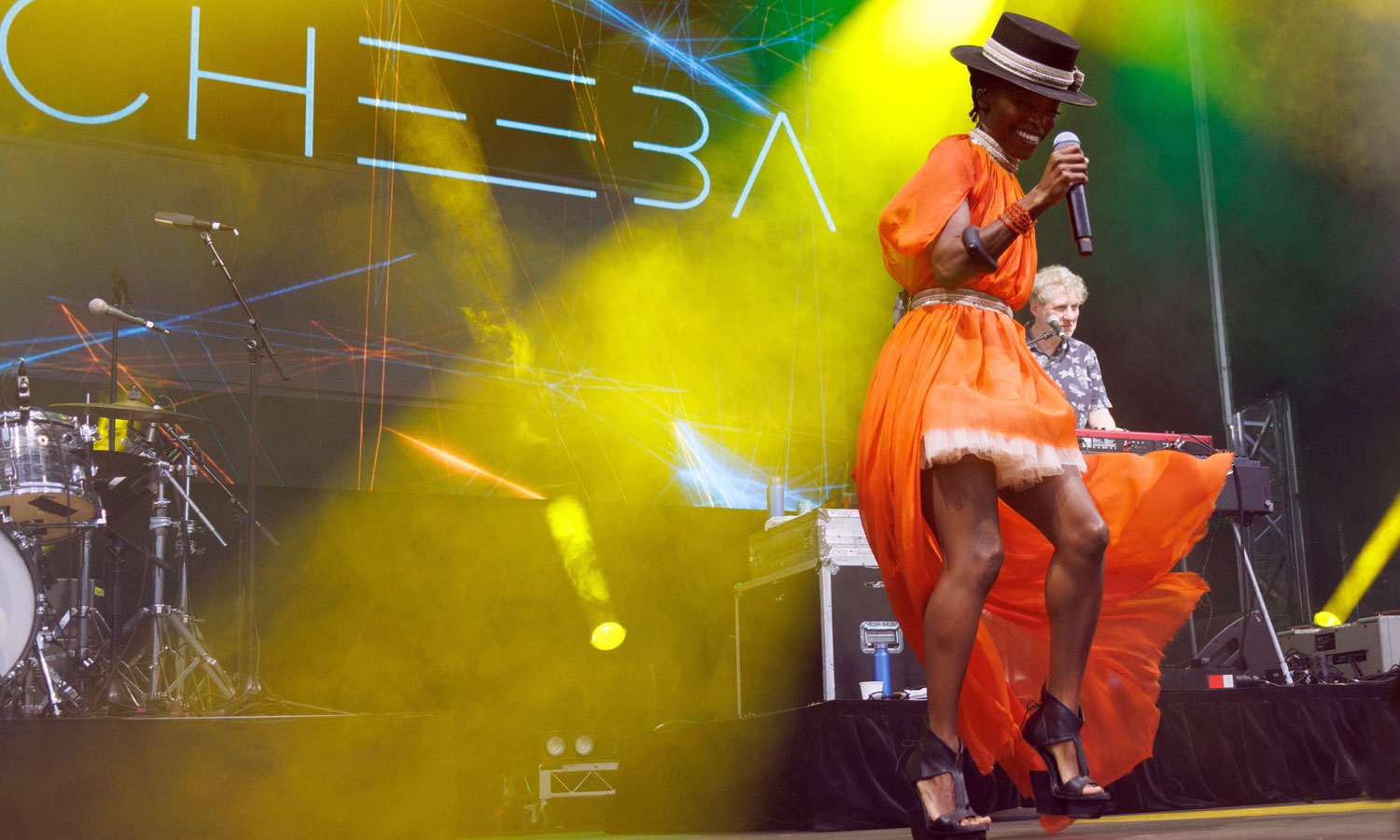
UK band Morcheeba. Photo: Tony Lewis
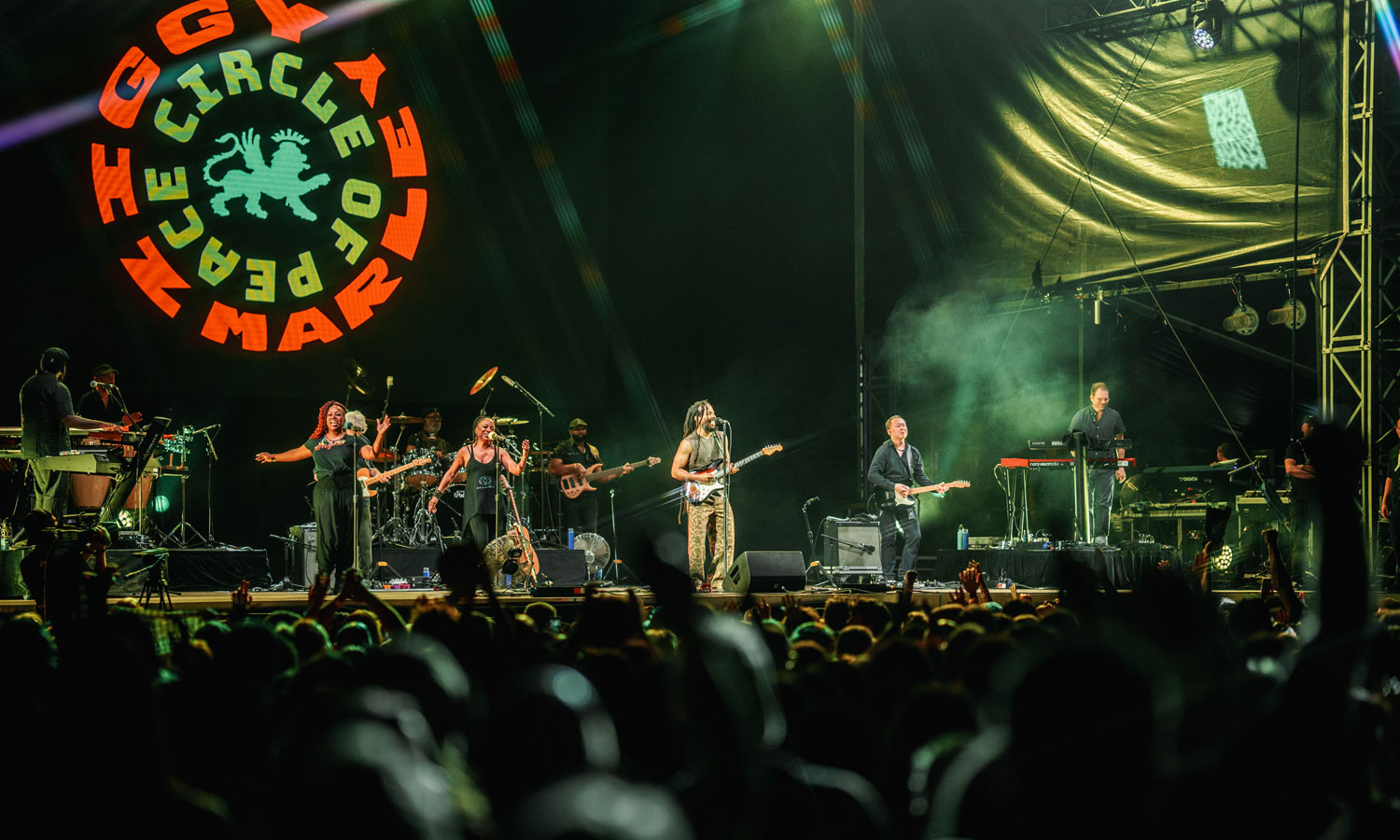
Ziggy Marley and Egypt 80. Photo: Saige Prime
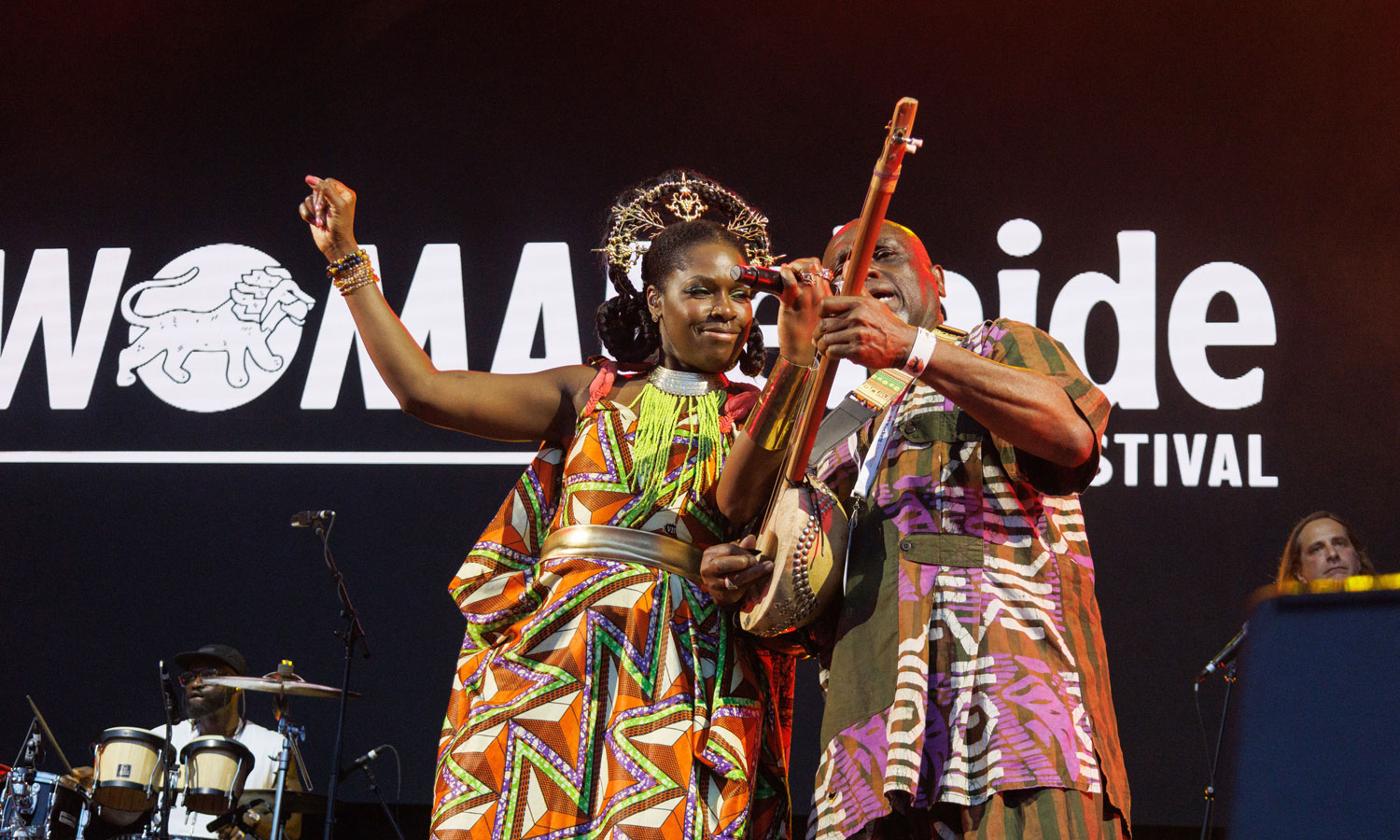
Ibibio Sound Machine. Photo: Tony Lewis
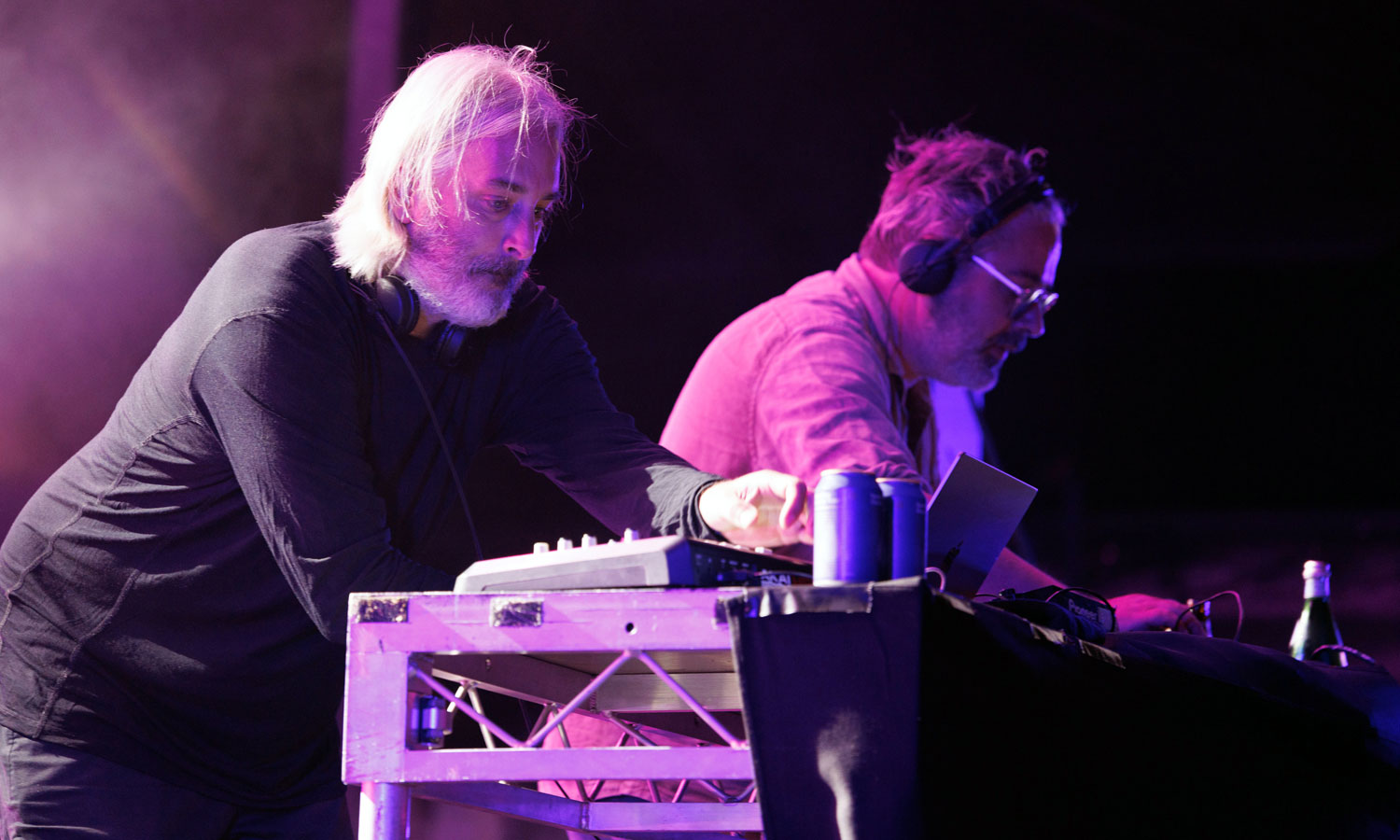
French duo Alan Braxe and DJ Falcon. Photo: Tony Lewis
Support local arts journalism
Your support will help us continue the important work of InReview in publishing free professional journalism that celebrates, interrogates and amplifies arts and culture in South Australia.
Donate Here
